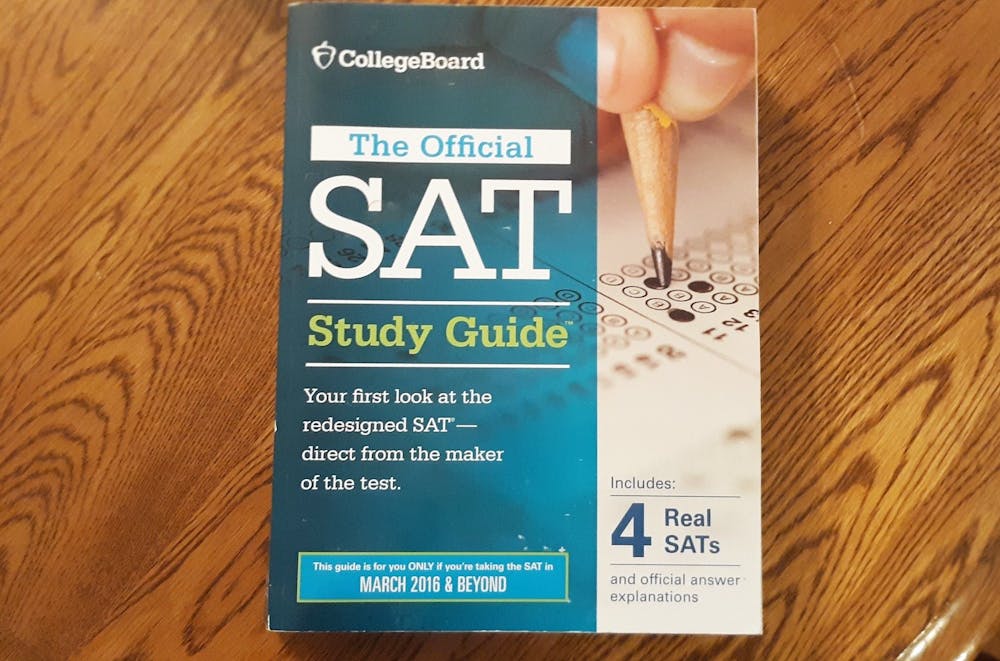The purpose of college entry-level standardized tests, such as the SAT and ACT, remains a topic of debate, with many schools becoming test-optional to combat academic inequalities. Though the COVID-19 pandemic served as a catalyst for these revisions, many prospective applicants still question if they should submit a score and how it will affect admissions and scholarship eligibility.
The Bloomington Faculty Council approved a plan in January to no longer require prospective undergraduate students to submit a standardized test score. Ron McFall, the director of scholarships for IU, said as this policy goes into effect for fall 2020 applicants, merit-based scholarship options will be available to all students based primarily on academics, not standardized test scores.
The policy was originally intended to support students with a grade-point average of 3.5 or higher who did not have access to standardized testing or wished to highlight other portions of their application. Due to potential testing complications due to the COVID-19 pandemic, IU revised the policy to allow all students to apply without an SAT or ACT score for fall 2021.
After the COVID-19 pandemic when universities return to pre-pandemic operations, students will not have to submit a test score unless they were homeschooled, are athletes subject to NCAA eligibility standards or had non-traditional evaluation methods where alpha-numeric grades were not assigned, according the office of admissions website.
McFall said removing the standardized test requirement allows IU to focus on applicants’ overall achievements, particularly for scholarship options.
“Just like admissions, our scholarship assessment is going to rely far less on tests than before,” he said. “We’re going to really embrace the test-optional applicant because we’ve realized that number is going to be much higher than we ever would’ve predicted a year ago.”
McFall said regardless of how a student chooses to apply, scholarship eligibility should not change.
“All students who apply are considered for merit scholarships at the time of admission, regardless of their application type,” he said. “We felt it was important to be genuine as we moved into a test-optional space that students weren’t disadvantaged by choosing one path or the other.”
Given the growing number of test-optional applicants, because of limited testing availability due to the COVID-19 pandemic, scholarship eligibility will be based primarily on a student’s high performance in academic coursework, McFall said in an email. Though a low GPA would constitute limited merit-based scholarship regardless of test score, the review process will focus more on classroom performance.
Lisa Thomassen is an active member of the Bloomington Faculty Council educational policies committee and voted to approve the policy change in January. She said one reason IU became test optional was because standardized tests are not necessarily indicative of student success.
“They’re not really predictive,” she said. “They’re not the best predictor of how successful somebody’s going to be in college, so why would you have this requirement?”
Thomassen also said students should be allowed to submit a test score if they deem it beneficial to their application, but she is glad IU tried to make the standardized testing policy as fair as possible.
“Why would we have something in place that might potentially be an impediment to students who might otherwise do well here at Indiana University?” she said. “So in some sense, it’s basically putting out a welcome mat.”
Recent IU applicant Jessica Purtee is a senior at Avon High School in Avon, Indiana. She said she applied without submitting a standardized test score because taking the SAT during the pandemic has been challenging due to lack of availability. She said test scores aren’t representative of college readiness.
“I’ve never been one to believe that standardized testing was a true measurement of someone’s ability,” she said. “The ability not to submit it, I thought that would be a better way of going about it.”
Purtee said she wasn’t sure how overall scholarship eligibility would be affected, but IU should let students know as soon as possible as they start to make their decisions on where to attend and whether to submit a score.
“If they have the ability to do different scholarships based on different things other than a test score, I think it’d be beneficial to lots of kids,” she said. “Getting the information out and known would be a good way of bringing kids in and it would help the application process, too.”




